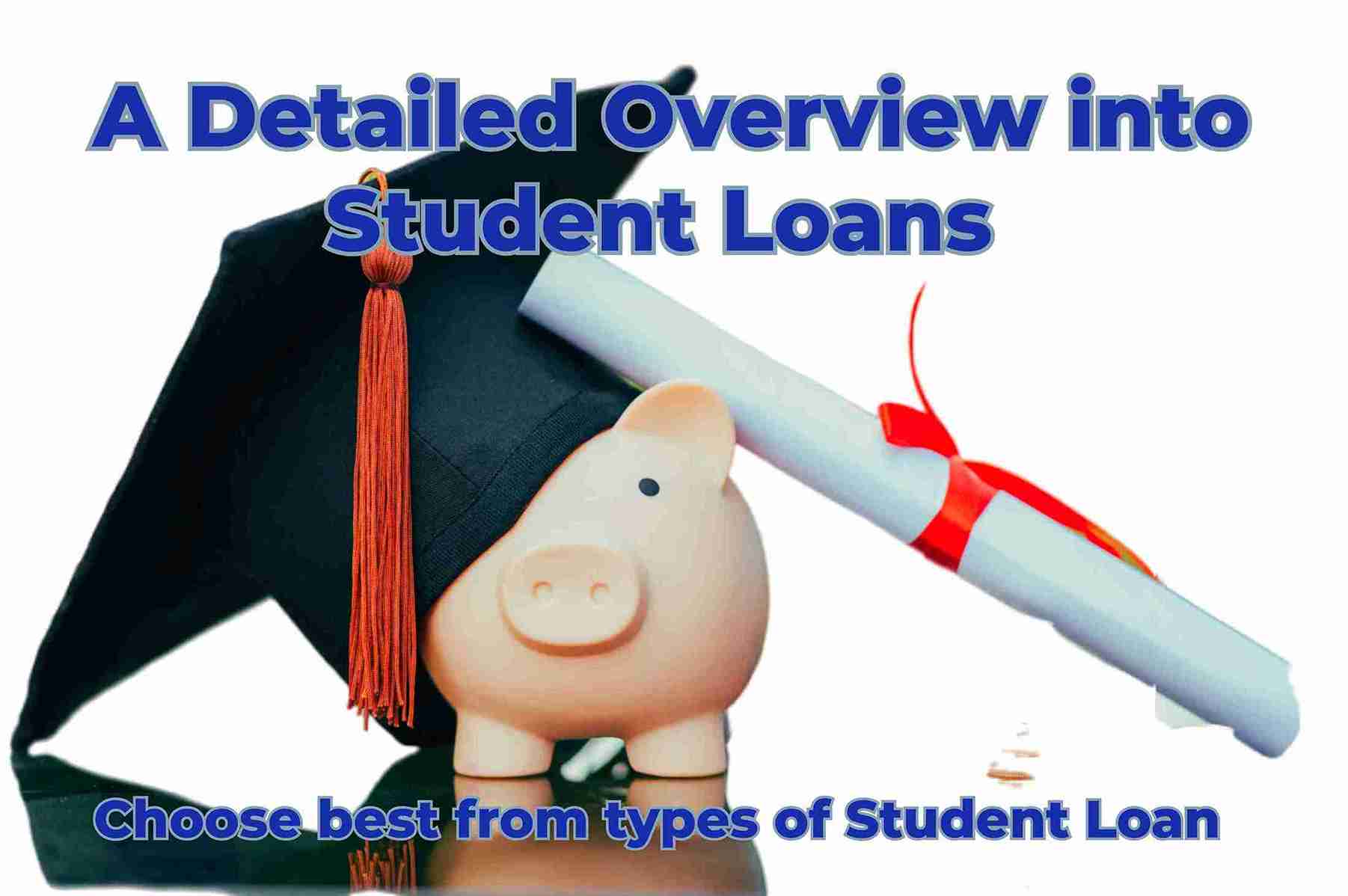It is crucial to understand the various types of student loans available for making informed decisions about your education financing. Exploring the world of student loans can be daunting, especially for first-time borrowers. This guide will walk you through the primary types of loans, their characteristics, and how they can impact your financial future.
What Are Student Loans?

Borrowed funds that help cover the cost of higher education are student loans. These loans need to be repaid with interest, which makes it essential to understand the different types and their terms. Types of student loans generally fall into two categories: federal student loans and private student loans.
Federal Student Loans

Government funded funds are federal student loans. They offer several benefits, including fixed interest rates and income-driven repayment plans.
Direct Subsidized Loans
Direct Subsidized Loans are given to undergraduate students with financial needs. The interest on these loans is paid by the government while you’re in school at least half-time, during the grace period, and during delayed periods.
Direct Unsubsidized Loans
Direct Unsubsidized Loans are available to both undergraduate and graduate students and do not require proof of financial need. Unlike subsidized loans, you are responsible for paying the interest at all times.
Direct PLUS Loans
Direct PLUS Loans are available to graduate students and parents of dependent undergraduates. These loans require a credit check and offer a higher borrowing limit compared to other federal loans.
Direct Consolidation Loans
Direct Consolidation Loans allow you to combine multiple federal student loans into a single loan with a fixed interest rate based on the weighted average of the interest rates of the loans being consolidated.
Private Student Loans

Private student loans are loans that are given by credit unions, bank and private lenders . They are an alternative or supplement to federal student loans but typically come with higher interest rates and less flexible repayment options.
Characteristics of Private Student Loans
- Variable or fixed interest rates: Unlike federal loans, private loans can have variable interest rates that may increase over time.
- Credit-based eligibility: Approval and interest rates depend on your credit score and financial history.
- Repayment options: These loans often require repayment while still in school, although some lenders offer deferment options.
Comparing Federal and Private Student Loans

Consider the following factors, when deciding between federal and private student loans:
- Interest Rates: Federal loans usually have lower, fixed interest rates. Private loans can have higher, variable rates.
- Repayment Flexibility: Federal loans offer more flexible repayment plans, including income-driven repayment options.
- Loan Forgiveness Programs: Federal loans may be eligible for forgiveness programs, which are not available for private loans.
Choosing the Right Student Loan

Selecting the right student loan depends on your financial situation, the cost of your education, and your long-term financial goals.
Steps to Take:
- Assess your financial need: Determine how much money you need to borrow after accounting for scholarships, grants, and personal savings.
- Research government loan options first: Federal loans often provide better terms and protections.
- Compare private loan offers: If you need additional funds, compare interest rates, repayment terms, and borrower benefits from multiple private lenders.
- Understand the repayment terms: Make sure you know when you will be required to start making payments and how much those payments will be.
Conclusion
Understanding the different types of student loans is essential for making informed decisions about funding your education. Whether you choose federal or private student loans, knowing the terms and conditions can help you manage your debt more effectively. For more information on how to manage and repay your student loans, check out our comprehensive guide on student loan repayment.
By familiarizing yourself with your options and planning ahead, you can minimize the financial burden of student loans and focus more on achieving your academic and career goals.
FAQs On Types of Student Loans
What is a Direct Subsidized Loan?
A direct Subsidized Loan is a federal loan for undergraduate students with financial need. The government pays the interest while you’re in school and during certain periods.
What is a Direct Unsubsidized Loan?
A Direct Unsubsidized Loan is a loan that is given to both undergraduate and graduate students. Unlike subsidized loans, you are responsible for all interest payments, even while in school.
What are Direct PLUS Loans?
Direct PLUS Loans are federal loans for graduate students and parents of dependent undergraduates. These loans offers higher borrowing limits and requires a credit check .
What is a Direct Consolidation Loan?
A Direct Consolidation Loan let’s you combine multiple federal student loans into one loan with a fixed interest rate. This simplifies repayment but can extend the loan term in some.
What are private student loans?
Private student loans are loans provided by credit unions,banks and other private lenders. They typically have higher interest rates and less flexible repayment options compared to federal loans.
How do interest rates compare between federal and private student loans?
Federal student loans usually have lower, fixed interest rates. Private student loans can have higher, variable interest rates that may increase over time.
Can federal student loans be forgiven?
Yes, federal student loans may be eligible for forgiveness programs, such as Public Service Loan Forgiveness. Private student loans do not qualify for these programs.
What are the things I should consider when choosing between federal and private student loans?
When choosing between federal and private student loans, consider interest rates, repayment flexibility, and eligibility for loan forgiveness programs. Federal loans typically offer better terms and protections.
How to apply for a federal student loan?
Fill out the Free Application for Federal Student Aid (FAFSA) to apply for a federal student loan. This application will determine your eligibility for federal loans, grants, and work-study programs.
